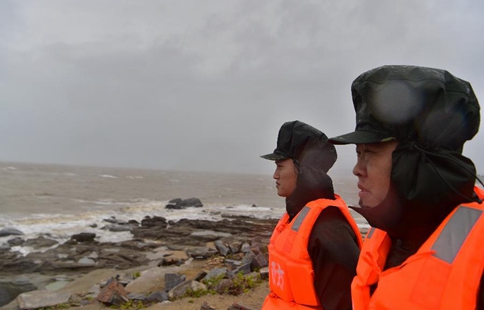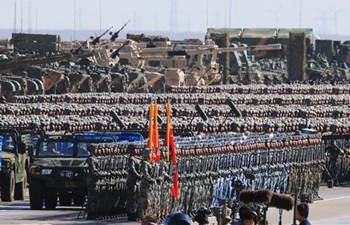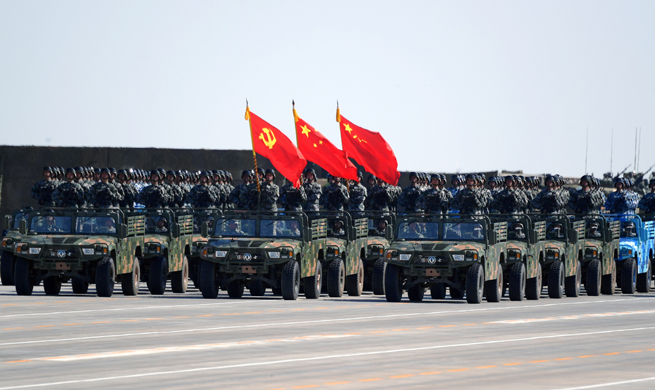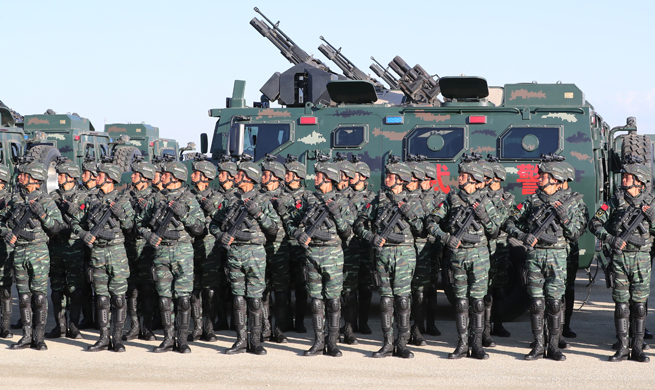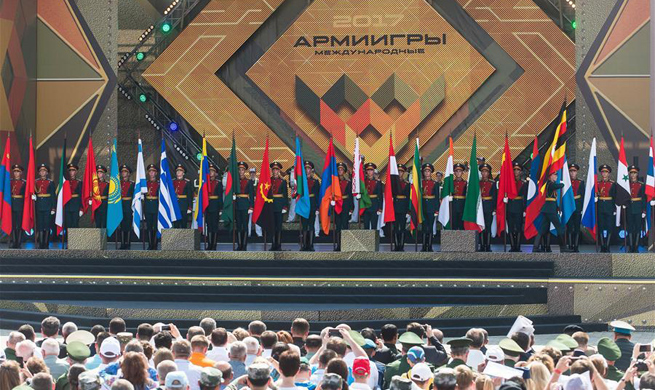MANAMA, July 30 (Xinhua) -- The Saudi Arabia-led Arab quartet on Sunday expressed preparedness for talks with Qatar, while insisting that Doha must meet their demands.
"We reiterate the importance of Qatar's compliance with the 13 demands outlined by the four states," said a joint statement released by the foreign ministers of Saudi Arabia, the United Arab Emirates (UAE), Bahrain and Egypt after a meeting.
Speaking at a televised joint news conference, Bahrain's Foreign Minister Sheikh Khalid bin Ahmed Al Khalifa said the four countries are ready for dialogue with Qatar if it announces its "sincere willingness" to stop funding terrorism and extremism, halt interference in other countries' foreign affairs, and respond to the 13 demands.
"We are ready to have a dialogue provided the 13 conditions are met by Qatar," said Sheikh Khalid.
Saudi Foreign Minister Adel Al Jubeir said their demands "cannot be negotiated," adding steps taken by his country along with the UAE, Bahrain and Egypt were "sovereign and within international accords."
On the issue of Qatari Hajj pilgrims, Al Jubeir said they are welcome by Saudi like pilgrims from any other country.
"Kingdom of Saudi Arabia does not accept politicization of the pilgrimage, which is a religious act," he said. "We will welcome Qatari pilgrims like other Muslims."
He blasted Iran for trying to exert influence by benefitting from the situation in the Gulf.
"Any country that has dealt with Iran has a negative consequence, and if our brothers in Qatar think they will reap any benefits with Iran then they did not assess the situation properly," he said.
UAE Foreign Affairs and International Cooperation Minister Sheikh Abdulla bin Zayed Al Nahyan said all measures taken by four states were within international laws and "essential to deter the scourge of terrorism which affected stability of other countries."
The Saudi-led quartet cut diplomatic ties with Qatar and imposed a blockade on the tiny rich Gulf nation on June 5, citing Doha's support of terrorism and extremism, interfering in their internal affairs and seeking closer ties with Iran, a Saudi rival.
The quartet presented in late June a list of 13 demands to Qatar as preconditions for resuming diplomatic ties and ending their sanctions. The demands included Doha's end to funding terrorism and extremism, stoping interference in their internal affairs and downgrading ties with Iran.
For its part, Qatar has strongly denied the charges, while rejecting the the quartet's demands, citing it would not negotiate on issues related to its sovereignty.
On Sunday, the quartet's foreign ministers also stressed that Doha must honor the six principles put forward by them during their previous meeting in Cairo, Egypt earlier the month.
The six principles, a reduced version of the 13 demands, include demands for Qatar to stop funding terrorism and extremist groups, stop inciting propaganda against them and halt interfering in their internal affairs.
They were created amid signs of easing of the Gulf standoff following the visit to the region by U.S. Secretary of State Rex Tillerson earlier the month.
During Tillerson's visit, Qatar and the U.S. signed a deal on combating terrorism financing, one of the core demands by the Saudi-led alliance.
Later, Qatari Emir Sheikh Tamim bin Hamad Al Thani issued a decree to amend some provisions of its law on fighting terrorism.
On July 21, in his first public speech since the crisis started, Sheikh Tamim also called for holding talks to resolve the Gulf standoff, though emphasizing that any talks should respect its national sovereignty.
He insisted that his country has been "fighting terrorism relentlessly and without compromise."





